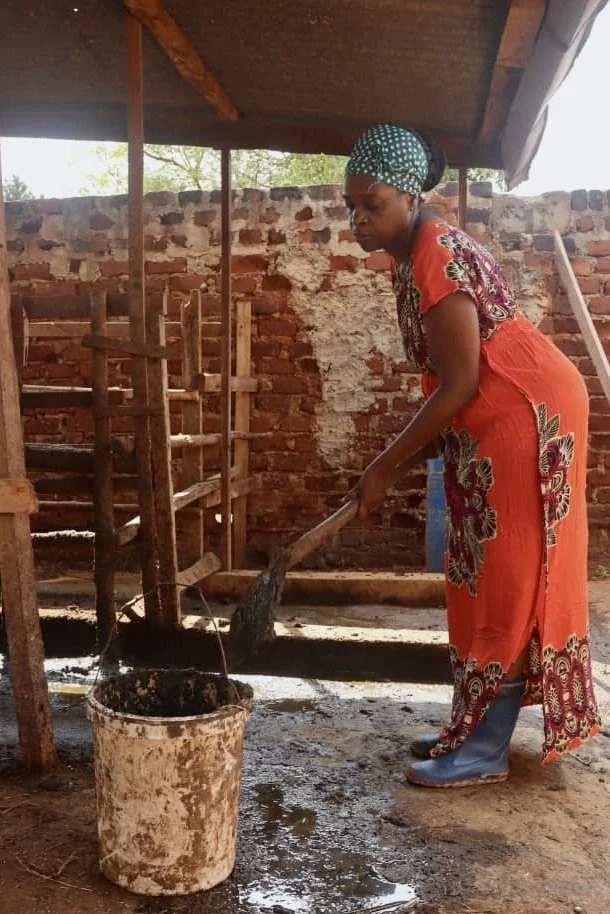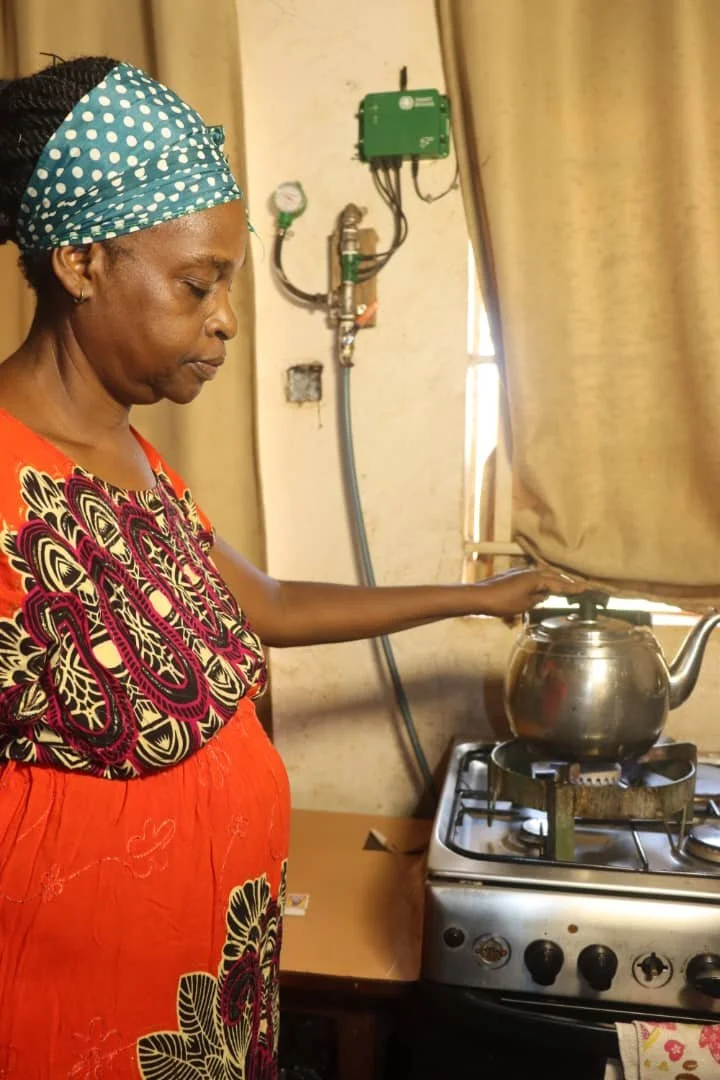In Jinja, Uganda, Rita is a subsistence farmer growing coffee and bananas and running a small-scale dairy farm. In 2014, after a training delivered by Biogas Solutions Uganda Limited (BSUL), Rita made a decision to adopt biogas – a reliable technology providing a cheap solution to both farm waste management and soil improvement. Her newly built 6m3 digester thus gave Rita enough gas to cater for the energy needs of hers and her family, making both charcoal and LPG – until then her traditional cooking fuels – redundant. Hers being the first digester in the village, it became a model for others to learn from – with neighbours visiting her digester and purchasing some of her bioslurry to fertilise their gardens. .
Rita’s digester management inspired many relatives and neighbours to invest in digesters themselves to experience and enjoy the benefits of clean cooking, waste management, and organic bioslurry.
In 2022, BSUL and Inclusive Energy installed 60 Smart Biogas meters at selected farmers’ – Rita being among them. Being now able to remotely monitor Rita’s digester, BSUL started unveiling issues with how biogas was used. In October 2023, Rita’s digester was found by Smart Biogas to be venting an average of 5 hours per day – reducing her cooking time to 2-2.5 hours daily. From Rita’s perspective, the perception that her digester was old, small, and having only one burner, made her comfortable with this amount of cooking time and removed her incentive to maximise gas production. She had not, in other words, realised that biogas supply from her digester was well below its potential, and by limiting her demand, she was herself contributing to the problem.
When BSUL’s Quality Service Provider visited Rita, she was unaware that her digester was venting – a fact that could have gone unnoticed was it not for Smart Biogas. In light of the insights by Inclusive Energy’s technology, the Quality Service Provider immediately proceeded to inspect the expansion chamber manhole, where he found gas bubbles – a clear sign of venting, confirming the diagnosis made through Smart Biogas. Rita was therefore advised not to limit her cooking to 2-2.5 hours per day, but instead to increase her cooking time so as to reduce the pressure in the digester, thereby minimising the escape of biogas. Initially unconvinced, Rita noticed a sizeable increase in her cooking time – up to 3.5-4 hours per day – upon following the Quality Service Provider’s advice.
Venting is a complex phenomenon, of which users and even technicians are often unaware of. Smart Biogas helps identifying this silent but relevant issue, thereby improving digester performance.
Rita is now newly satisfied with biogas meeting her energy needs, just as she was back in 2014 when her digester was first commissioned. It is only through the introduction of Smart Biogas that this success story is possible, however, since both Rita and the Quality Service Provider – unalerted by the user – would have ignored this issue, which is not easy to diagnose. In light of this success story, other Quality Service Providers in Uganda are now monitoring their clients’ digesters, using this information to troubleshoot and help farmers optimize the performance of their assets and minimise the loss of biogas due to venting – with important environmental and social consequences.


